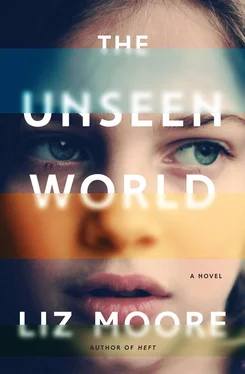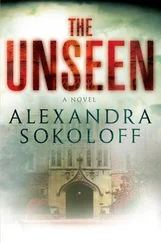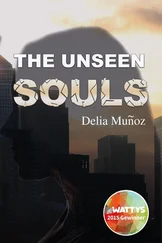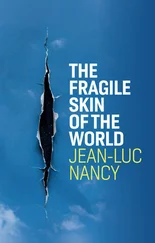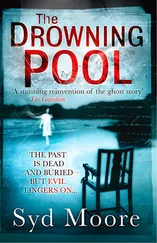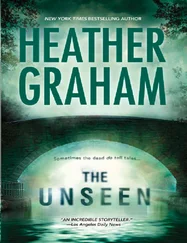“What am I forgetting,” he said to Ada tensely.
Lately she had noticed a change in her father’s disposition, from blithe and curious to concerned and withdrawn. For most of her life, Ada’s father had been better at talking than at listening, but not when it came to her lessons. When it came to her lessons, to the responses she gave, he was rapt. When it came to some other, lesser topic of conversation, he drifted from time to time, looking out the window, or at what he was working on, giving birth to moments of silence that lasted longer than she thought possible and ending only when she said, “David?”
Where he had formerly sat and chatted with her or furthered her lessons until it was time for bed, now he went into his home office and worked on his computer, sometimes staying up until the early hours of the morning, sometimes falling asleep at his desk and hurrying to work with a spiderweb of red lines upon his face from whatever had creased it overnight. Sometimes she woke to find him writing at the kitchen table, filling yellow notepads with unknowable screeds, blinking at her with a certain lack of recognition when she wandered into his orbit. Sometimes he went off on walks without telling her, returning hours later with little explanation. Sometimes she woke to find him puttering around the house in odd attire: his swim trunks or his one suit jacket, a wrench or hammer in his hand, fixing things that he never before had seemed to notice. He had always kept a workbench and a sort of makeshift laboratory in a room off the basement — it was where he had taught her chemistry, with various substances he borrowed from friends at the Bit or extracted from household products or from nature — but he spent more time there now, building devices in glass and plastic that looked meaningless to Ada. They looked like goggles, or helmets, or masks. She had donned several of them, when her father was out, and found them heavy and useless; she could not see out of them, though they bore openings over each eye. “What are they?” she asked him, and he had only told her they were part of a new project.
He still ate dinner with her each night but recently had seemed abstracted, or in a fog: she tried to engage him with questions about history or physics or mathematics, but the answers he gave were short ones, not the usual lengthy monologues he formerly delivered with such gusto, and these days he never asked her questions afterward to make sure that she had understood. But her lessons were still regular enough, and interesting, and with very little effort Ada could easily persuade herself that he was fine. She told herself that he must be working on something quite important, something he didn’t yet feel ready to share with anyone, even her. Convincing herself of this was in every way an act of self-preservation, because her world revolved entirely around her father, and any disturbance in this orbit threatened to send her spinning into space.
“Cheese and crackers,” David said. “Of course.”
Ada ran to get them, but the kitchen was disastrous by then and she overturned one of the gin rickeys in the process. It leaked onto the lobster tray and down the side of her leg.
“Shit,” she said, too quietly to be heard. She had recently learned to curse: it was her one act of rebellion against her father, who was not prudish but thought that cursing was uncreative, in some way unintelligent.
She mopped up the liquid with a rag and got out the cheese and crackers and put them on a wooden cutting board—“Put some of the mustard in the center,” said her father; “Not like that, like this”—and then, as she was making a new drink, the doorbell rang. It was a four-part chime that David had rigged himself, the first four notes of Beethoven’s Fifth — which themselves were, he had explained to her, meant to sound like death or fate, some powerful perennial force, rapping at the door. Her father sprinted out of the kitchen and into the main room to let in his first guest, and from the kitchen she heard that it was Liston: the low confident voice, the local accent that enthralled her, that she imitated in private, that she and her father did not have.
“Come in, come in,” said David, “come in, my Liston.”
Liston had a first name: it was Diana, but for as long as Ada had known her she had been only Liston to David, and therefore she was Liston to Ada, too. Liston, his best friend, his best thinker, first author on all of his papers; Liston, their neighbor, who lived four houses away from them. It was Liston who convinced David to move to this neighborhood shortly after Ada’s birth: a studio apartment in the Theater District would not work for a father and daughter, she had told him, once the daughter was over the age of four. So Liston’s friend Connie Reardon, the real estate kingpin of Dorchester, had found David this house on this street, Shawmut Way, and Liston had approved, and began calling him “neighbor” for laughs.
Liston was very smart and impressively self-educated: David had said once that she was raised on the wrong side of the bridge in Savin Hill by a plumber and a homemaker, on the middle floor of a triple-decker, and Ada had asked him what it meant to be from the wrong side of the bridge, and he said it was poorer over there, and then she asked him what a homemaker was, and he told her it was a woman who does nothing but raise her children and keep her husband happy and her house tidy. “Very unlike Liston,” he had stated approvingly.
Liston was Ada’s favorite person in the world aside from David. She gathered scraps of information about Liston’s life as if assembling a quilt: Liston no longer had a husband. She had an older daughter, Joanie, twenty-six and out of the house now, and three younger sons. David had briefly recounted the story of Liston’s divorce: she married too young, at eighteen, because Joanie was on the way. It was to a boy from her neighborhood, he told Ada, someone who did not understand the scope of her talent and the particular requirements of her career. (Ada had vague memories of this husband, who was still married to Liston for the first five years of Ada’s life: she remembered a large, unpleasant figure who never made a noise, except to exhale occasionally after something Liston said.) After Joanie was born, Liston worked her way through UMass as an undergraduate and then, after several professors there noticed her outstanding scientific and mathematical mind, she earned her doctorate in electrical engineering from Brown. David hired her as a postdoc, and later full-time. Liston divorced her husband right after the birth of her son Matty, four years younger than Ada, and since that time had relied on a large network of the women friends she grew up with for child care and emotional support. In the words of David, the husband was no longer in the picture, and good riddance. “This must be the most important factor in your choice of a life partner,” he told Ada. “Who will most patiently and enthusiastically support your ambitions?”
“Shouldn’t she have recess, or something?” Liston once asked David, several years before, when she noticed Ada becoming pale from spending every day inside the lab. “Agreed,” said David, and so every day at lunch he had begun to march her around the Fens for thirty minutes, observing the flora, naming the birds by their songs, pointing out where Fibonacci sequences occurred in nature, once finding a mushroom that he said was edible and then cooking it up for the lab. Sometimes Liston joined them, and when she did it was a special treat: she derailed David’s monologues at times; she told Ada about her childhood; she told Ada about the music that her three sons listened to, and the television shows they watched, and at night Ada wrote down what she had heard in her journal for future reference, in the unlikely event that she was ever called upon to discuss popular culture with one of her peers. Often, Ada felt as if Liston were teaching her some new language. She consumed greedily everything that Liston told her. She looked at her with wide fixated eyes.
Читать дальше
